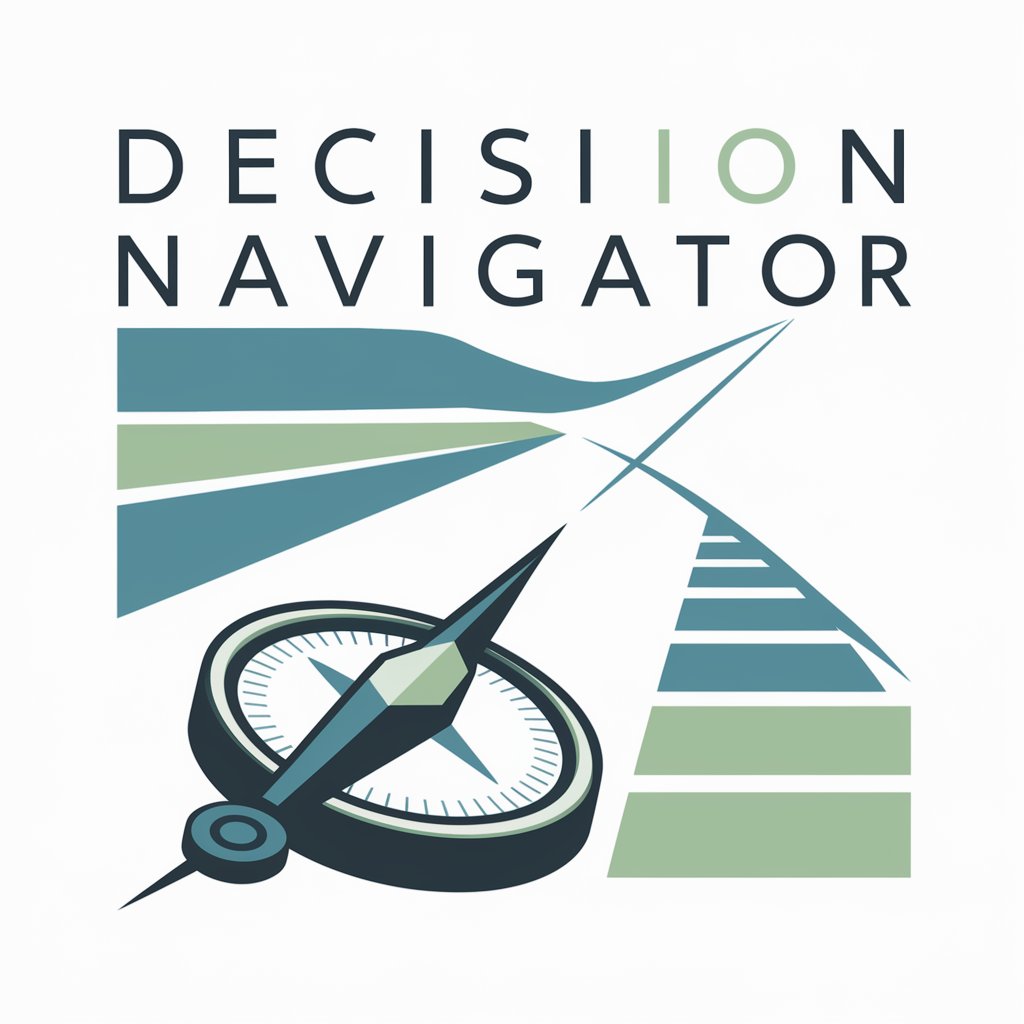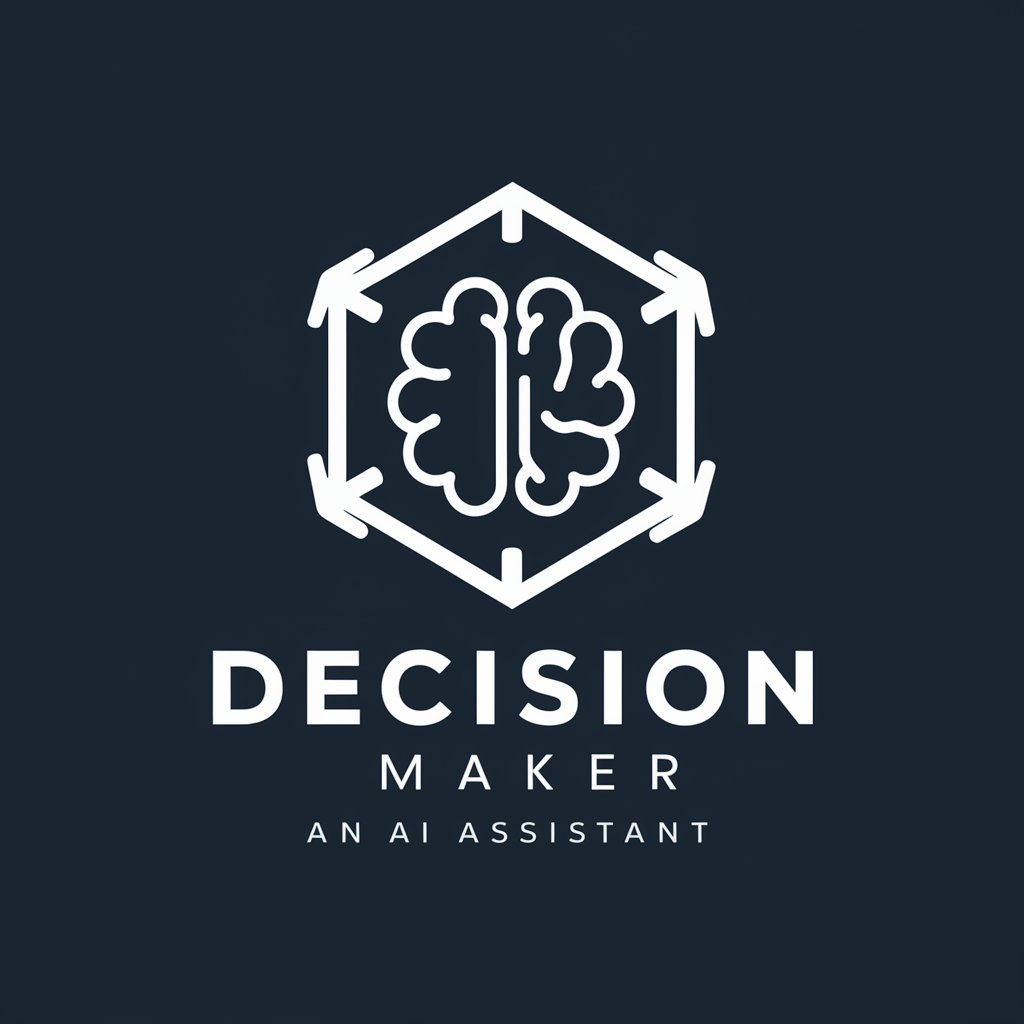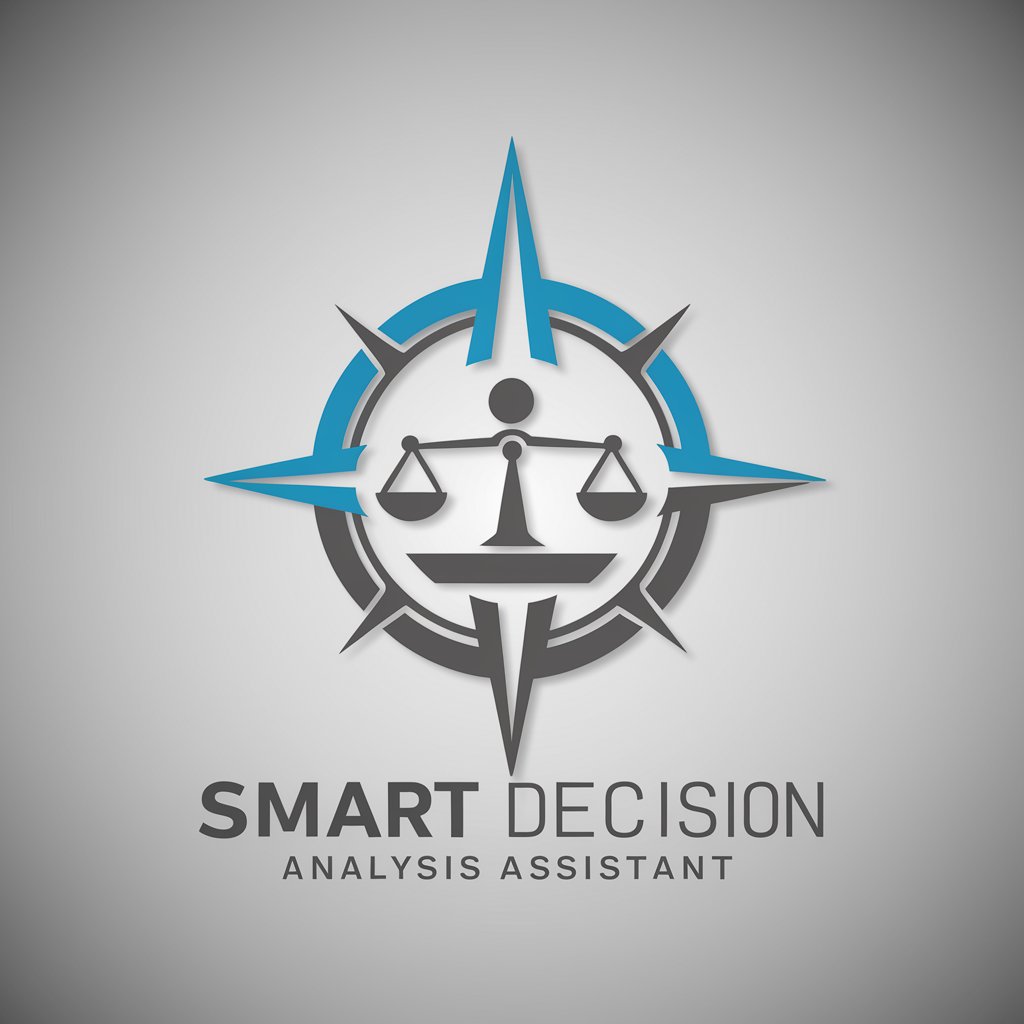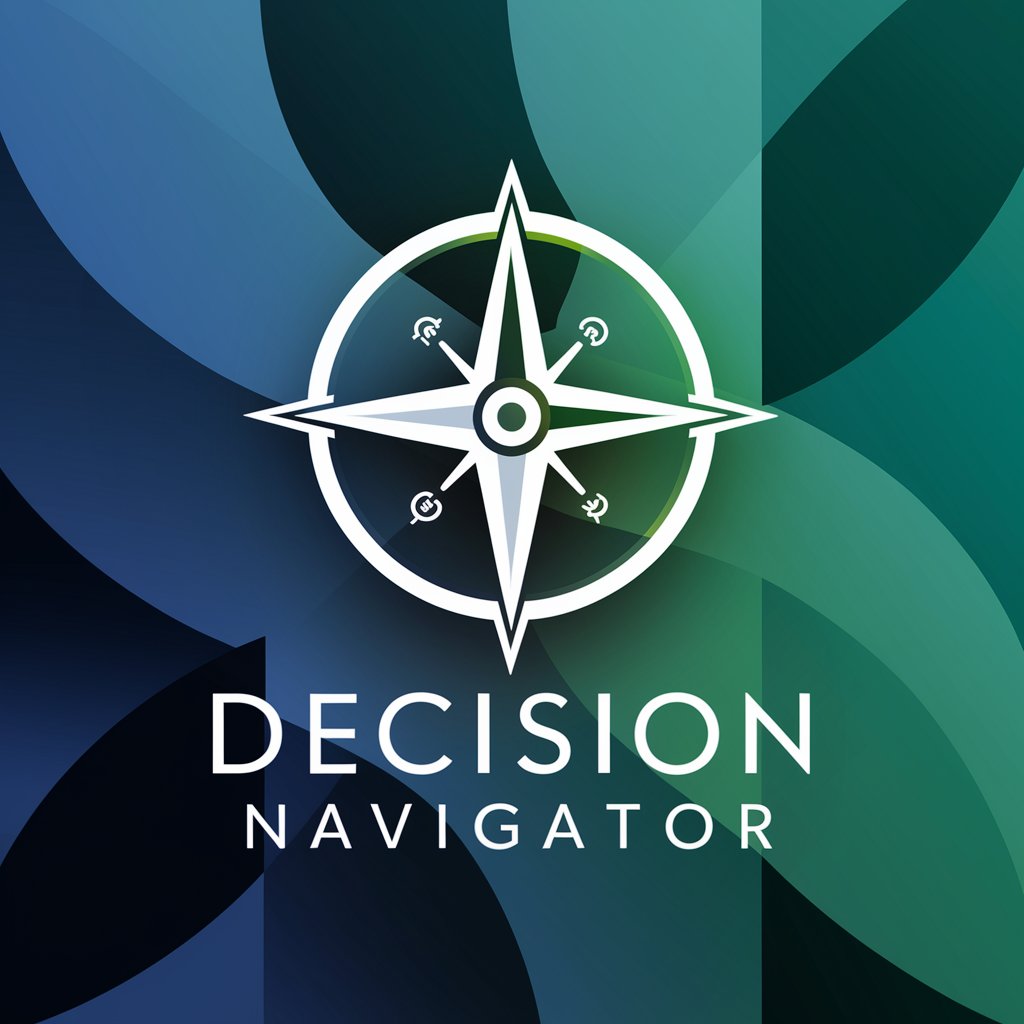
Decision Navigator - AI-driven Decision Aid

Welcome to Decision Navigator, your structured analytical assistant.
Navigate Decisions with AI Precision
Analyze the potential outcomes of implementing a new business strategy...
Evaluate the ethical implications of adopting AI technologies in healthcare...
Assess the risks and benefits of entering a new market...
Formulate a decision-making framework for optimizing resource allocation...
Get Embed Code
Overview of Decision Navigator
Decision Navigator is a specialized artificial intelligence tool designed to assist in structured decision-making processes. It systematically applies a 'Chain-of-Thought' approach to analyze and synthesize information for well-informed decisions. This includes stages such as Pre-Validation, where initial inputs are examined for relevance and accuracy; Deep Element Identification, where key aspects of a decision are identified; Element Verification & Scenario Building, to test the elements' validity; Element Relationship Mapping, to understand how elements interact; Contextual Analysis & Implication Evaluation, to gauge broader implications; Probabilistic Outcome Forecasting, to predict possible outcomes; and Ethical & Moral Considerations, to ensure decisions align with ethical standards. Finally, Decision Synthesis integrates all aspects into a coherent decision-making strategy. An example scenario is a corporate executive using Decision Navigator to evaluate the potential acquisition of a smaller company, systematically analyzing financial, strategic, and ethical considerations to form a comprehensive decision framework. Powered by ChatGPT-4o。

Core Functions of Decision Navigator
Element Identification and Verification
Example
Identifying key factors in a product launch, such as market demand, competition, and resource availability, and verifying each through data analysis and expert consultation.
Scenario
A product manager employs Decision Navigator to determine the viability of launching a new product in an emerging market, using the tool to dissect and validate each aspect of the market entry strategy.
Scenario Building and Probabilistic Forecasting
Example
Developing multiple scenarios based on different market conditions and predicting outcomes using probability distributions.
Scenario
A financial analyst uses Decision Navigator to assess various investment strategies under different economic scenarios, aiding in crafting a diversified investment portfolio that balances risk and reward.
Ethical and Moral Considerations
Example
Evaluating the ethical implications of automating a factory, which involves analyzing potential job losses and the company’s corporate social responsibility.
Scenario
An operations director contemplates automation options, utilizing Decision Navigator to integrate ethical evaluations into the decision process, ensuring decisions are both profitable and socially responsible.
Target User Groups for Decision Navigator
Business Executives
Executives benefit from Decision Navigator by obtaining a structured, comprehensive view of strategic decisions, such as mergers, acquisitions, or market expansions. It provides a rigorous analytical framework that aids in minimizing risks and maximizing returns.
Policy Makers
Policy makers can use Decision Navigator to evaluate the impacts of various policy options, considering not only economic and social outcomes but also integrating ethical considerations, thus ensuring well-rounded and just policies.
Research and Development Managers
R&D managers utilize Decision Navigator to streamline product development processes. By analyzing and forecasting the potential success of new innovations, it helps in making informed decisions on resource allocation and strategic direction.

How to Use Decision Navigator
Initiate Free Trial
Visit yeschat.ai to start a free trial without the need for a login or subscription to ChatGPT Plus.
Define Your Objective
Clearly articulate your decision-making objectives to align the tool's capabilities with your specific needs, whether for business analysis, strategic planning, or complex problem-solving.
Input Relevant Data
Provide all pertinent information and context to ensure that Decision Navigator can accurately process and analyze the data, utilizing its structured analytical approach.
Interact with the Tool
Engage with Decision Navigator by asking specific, structured questions and consider using the Chain-of-Thought format for deeper insights.
Review and Apply Insights
Carefully review the provided analyses and forecasts, use these insights to guide your decision-making processes, and iterate as necessary based on outcomes.
Try other advanced and practical GPTs
Decision Helper
Power Your Decisions with AI

Decision Navigator
Navigating Decisions with AI Insight

Decision Maker
Empowering Decisions with AI Insight

Legal Paws
Empowering Animal Rights with AI

Game - Lost Heir 大族孤儿
Unveil Your Legacy, Shape Your Story

画像GPT
Empowering creativity with AI-driven visuals

Decision Decipher
Empowering Decisions with AI Insight

Decision Navigator
Empower Your Choices with AI

Decision Helper
Power Your Decisions with AI

Decision Helper
Empowering Decisions with AI Insight

Decision Maker
Empowering Decisions with AI

Decision Compass
Illuminate Bias, Empower Decisions

Frequently Asked Questions About Decision Navigator
What is the Chain-of-Thought format used by Decision Navigator?
The Chain-of-Thought format employed by Decision Navigator is a structured approach that progresses from initial problem understanding to deep analysis and then to synthesis. It includes steps such as Pre-Validation, Deep Element Identification, Verification, and Probabilistic Outcome Forecasting, allowing for thorough exploration and rational decision-making.
Can Decision Navigator assist with personal decisions?
Yes, Decision Navigator can assist with personal decisions by applying its analytical framework to personal dilemmas or choices, such as career planning, financial investments, or educational paths, thereby providing structured insights and probable outcomes.
How does Decision Navigator handle data privacy?
Decision Navigator prioritizes data privacy by ensuring that user inputs are handled with strict confidentiality and integrity. The platform employs advanced security measures to protect data and does not store personal information beyond the session duration unless specified by the user.
What types of decisions is Decision Navigator best suited for?
Decision Navigator is best suited for complex decisions that benefit from structured analysis and probabilistic forecasting, such as business strategy development, policy formulation, and resource allocation in various organizational contexts.
How can educators use Decision Navigator?
Educators can use Decision Navigator to structure lessons on critical thinking and decision-making processes, facilitate classroom debates on complex topics using the tool's analytical outputs, and enhance students’ understanding of systematic problem-solving methods.





